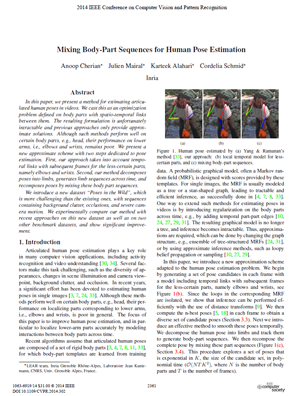Seminar on Current Works in Computer Vision
Prof. Thomas BroxComputer Vision is a very active research field with many practical applications, for instance in quality control, robotics, or driver assistance systems. The ultimate goal of Computer Vision is to imitate the great capabilies of the human visual system, allowing the computer not only to record images but also to interpret them. Research has made significant progress in recent years and particularly deep learning has helped improve on many tasks and approach new ones.
In this seminar we will take a detailed look at the most interesting recent works. For each paper there will be one person, who performs a more detailed investigation of a research paper and its background and who will give a presentation. The presentation is followed by a discussion with all participants about the merits and limitations of the respective paper. You will learn to read and understand contemporary research papers, to give a good oral presentation, to ask questions, and to openly discuss a research problem.
|

|
Slides with instructions for a good presentation
Powerpoint template (optional)
Papers:
| Date | Paper | Questions | Presenting student | Slides | Advisor |
| 29.05 | Video segmentation with language based detection | Questions | Ben Bausch | Slides | Maxim Tatarchenko |
| 19.06 | Self-supervised feature learning for future prediction | Questions | Stefan Moehrle | Slides | Jan Bechtold |
| 26.06 | Few-shot learning | Questions | Constantin Wittig | Slides | Tonmoy Saikia |
| 03.07 | Camera pose estimation | Questions | Lal Jose | Slides | Philipp Schroeppel |
| 10.07 | Future person activities and locations | Questions | Naya Baslan | Slides | Osama Makansi |
| 17.07 | Unsupervised learning of correspondence | Questions | Mohamed Feras Shaheen | Slides | Nikolaus Mayer |
| 24.07 | Cross-modal learning of video and text | Questions | Simon Ging | Slides | Mohammadreza Zolfaghari |


